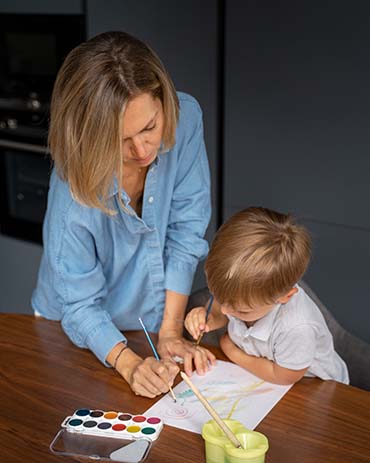Table of Contents
Starting pre-school is a significant milestone for both children and parents. As exciting as it is, it can also be a challenging transition. This guide will help you understand how to prepare your child for pre-school, making the process smoother and less stressful for everyone involved.
1. Understanding the Importance of Pre-School
Pre-school is more than just a place for children to play. It’s a foundational experience that sets the stage for future learning and development. Understanding its importance can help you appreciate why preparing your child for pre-school is crucial.
2. Start with Routine Building
Children thrive on routine. Establishing a daily schedule that mimics a typical pre-school day will help your child adjust more easily when the time comes. Start with simple activities like setting a regular bedtime, waking up at the same time, and having meals at consistent intervals.
3. Encourage Independence
One of the most important aspects of pre-school is fostering independence. Encourage your child to do small tasks on their own, such as dressing themselves, using the bathroom, and tidying up their toys. You can find helpful tools and clothing designed for kids on our online shop. This not only boosts their confidence but also prepares them for the independence required in a pre-school setting.
4. Introduce Social Interaction
Pre-school involves interacting with other children, which can be overwhelming for some. To ease this transition, arrange playdates or take your child to the park where they can play with other kids. This helps them get used to sharing, taking turns, and playing cooperatively.
5. Practice Separation

For many children, the hardest part of how to prepare your child for pre-school is being away from their parents. To help with this, practice short periods of separation. Leave your child with a trusted caregiver or at a friend’s house for a few hours to help them get used to the idea that you will always come back.
6. Foster a Love for Learning
Make learning fun and part of your daily routine. Engage in activities that encourage curiosity and learning, such as reading books together, playing educational games, and exploring nature. For more ideas on fostering a love of learning, check out our related blog post. This helps your child associate learning with fun, making them more excited about starting pre-school.
7. Visit the Pre-School Together
If possible, visit the pre-school with your child before their first day. Familiarize them with the environment, introduce them to their teacher, and let them explore the classroom. This will help reduce anxiety as they’ll have a better idea of what to expect.
8. Talk About Pre-School Positively
Children often pick up on their parents’ emotions. If you’re anxious about your child starting pre-school, they might be too. Talk about pre-school in a positive light, emphasizing the fun activities, new friends, and exciting things they’ll learn.
9. Establish a Goodbye Routine
Creating a consistent goodbye routine can make the morning drop-off smoother. Whether it’s a special hug, a kiss, or a high-five, a routine helps your child feel secure and understand that you’ll be back to pick them up.
10. Be Patient and Supportive
Every child adjusts to pre-school at their own pace. Understanding how to prepare your child for pre-school can help ease this transition. Some may be excited from day one, while others might take longer to settle in. Be patient, supportive, and encourage your child with positive reinforcement. Celebrate small victories, like a good day at school, to boost their confidence.
By following these steps, you’ll be well on your way to preparing your child for pre-school. With patience, support, and the right strategies, you can make this important transition a positive and exciting experience for your little one.
It’s advisable to start preparing your child a few months before pre-school begins to ensure they have time to adjust.
Be patient and keep encouraging your child with positive reinforcement. Gradual exposure and routine can help ease their resistance.
Practice short separations before pre-school starts, and establish a consistent goodbye routine that reassures them you’ll return.
Encourage social interaction through playdates and group activities. Be supportive and teach them how to engage with others.
Yes, it’s common. However, if crying persists for several weeks, it may be helpful to discuss it with the teacher for additional support.


